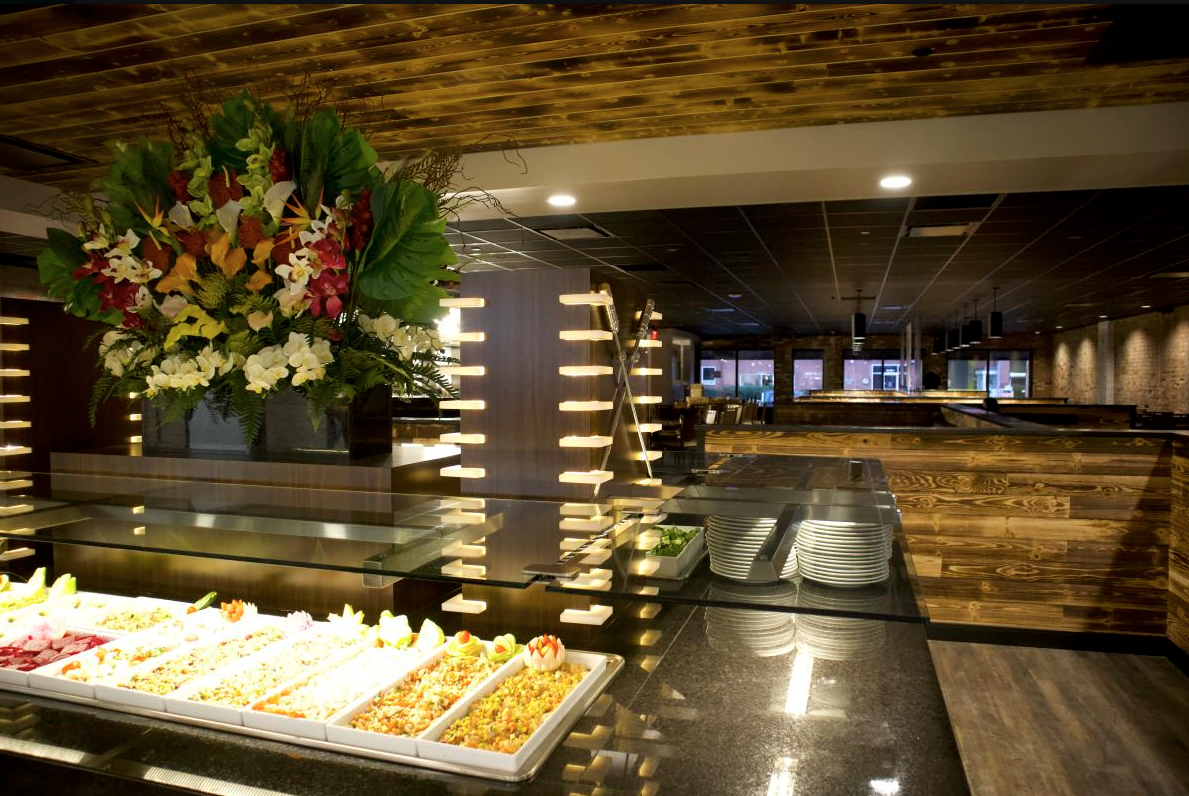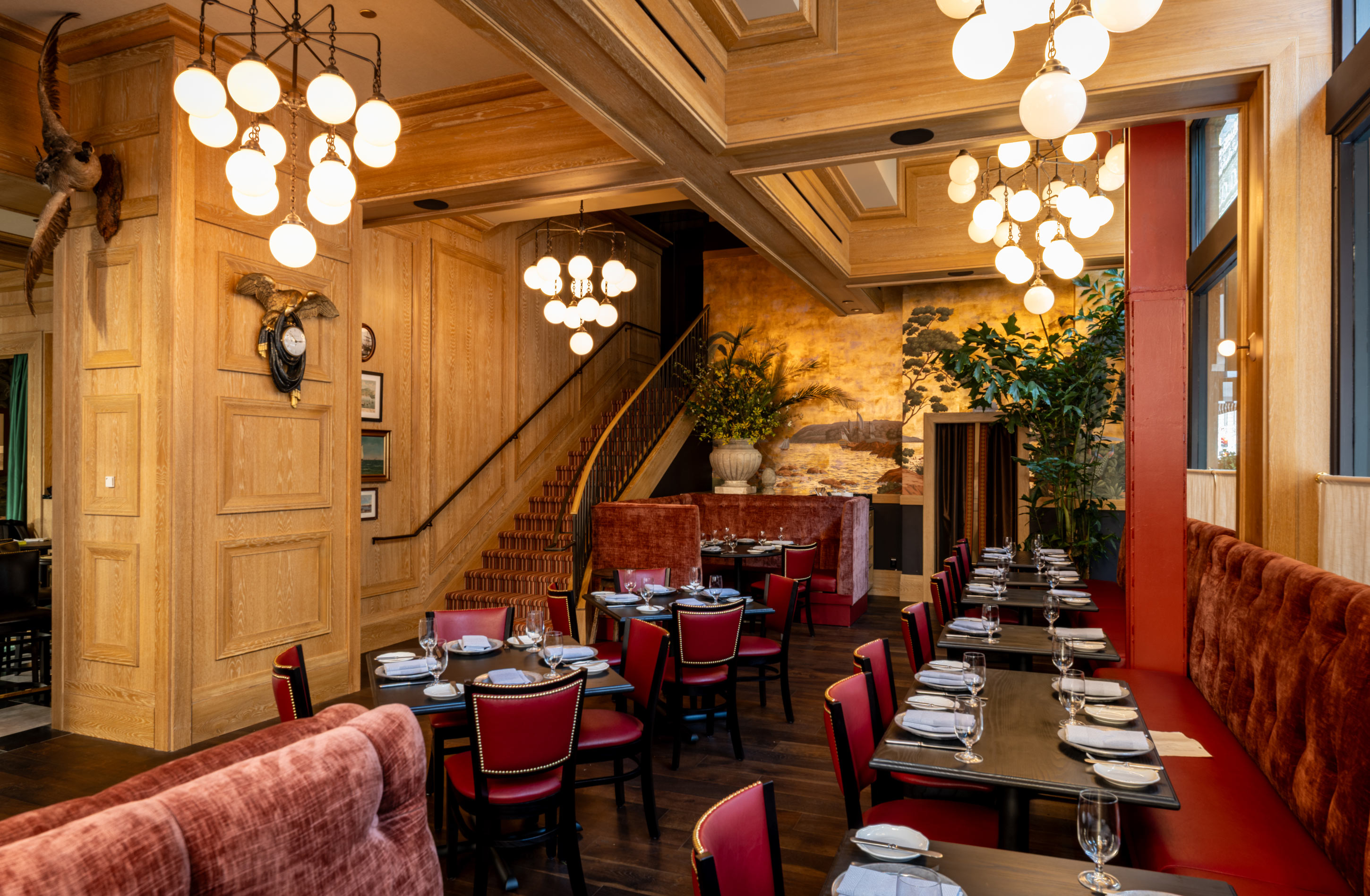
The restaurant industry is experiencing a voice AI revolution, with AI hosts becoming the new front line of customer service (2025 Showdown: Hostie AI vs SoundHound for Automated Restaurant Reservations & Take-Out Calls). High-volume restaurants receive between 800 and 1,000 calls per month, which can disrupt service and overwhelm staff (2025 Buyer's Guide: Best AI Restaurant Software for Automating Phone Reservations). Over two-thirds of Americans would stop patronizing restaurants that don't answer the phone, highlighting the importance of call management in the hospitality industry (2025 Head-to-Head: Hostie AI vs Slang.ai—Which Voice Reservation Bot Converts More calls?).
If you recently called up a restaurant in New York City, Miami, Atlanta, or San Francisco, chances are you have spoken to one of these polite, calculated AI competitors (When You Call a Restaurant). Three platforms are leading this transformation: Hostie AI, SoundHound, and ConverseNow. Each offers sophisticated voice AI solutions for restaurant automation, but they differ significantly in their approach, capabilities, and pricing models.
| Platform | Best For | Standout Feature | Starting Price | Languages Supported |
|---|---|---|---|---|
| Hostie AI | Full-service restaurants | Natural conversational AI with unlimited prompts | Custom pricing | 20+ languages |
| SoundHound | Enterprise chains | 100-million-interaction platform with deep analytics | Enterprise pricing | Multiple languages |
| ConverseNow | Quick-service restaurants | QSR-focused ordering optimization | Tier-based pricing | Limited multilingual |
When evaluating voice AI platforms for restaurant phone reservations and takeout, several critical factors determine success:
AI restaurant software is designed to handle calls 24/7, manage reservations, and free up staff to focus on the dining experience (2025 Buyer's Guide: Best AI Restaurant Software for Automating Phone Reservations). The restaurant industry is undergoing a technological revolution with AI-powered systems transforming guest communications and reservations (Zero-Touch Reservations: Connecting Hostie AI, OpenTable, and Toast for Seamless Guest Experience).
Why Choose Hostie AI: Hostie positions itself as "AI for restaurants, made by restaurants," focusing exclusively on hospitality with deep POS and reservation system integrations (2025 Showdown: Hostie AI vs SoundHound for Automated Restaurant Reservations & Take-Out Calls). The platform handles calls, texts, and emails for restaurants, and can make reservations and place orders (Hostie - AI for Restaurants, Made by Restaurants).
Key Strengths:
Integration Capabilities:
Hostie AI's voice agent can be integrated with OpenTable's Connect API and Toast's new Voice Ordering beta, released in June 2025, to achieve zero-touch reservations (2025 Step-by-Step Integration Guide: Connecting Hostie AI with OpenTable & Toast POS for Zero-Touch Reservations). Zero-touch reservations allow calls to flow directly from Hostie's AI system to the restaurant's POS and kitchen display systems without any human intervention (2025 Step-by-Step Integration Guide: Connecting Hostie AI with OpenTable & Toast POS for Zero-Touch Reservations).
Performance Metrics:
Data from over 500,000 restaurant calls collected between Q4 2024 and Q2 2025 showed a 91% drop in hold time and an 87% reduction in missed calls when AI handles the phone (Peak-Hour Accuracy Showdown: Online Assistant vs. Live Host Across 500k Restaurant Calls).
Multilingual Excellence:
The restaurant industry is undergoing a technological revolution with AI-powered phone systems transforming customer interactions, with AI hosts handling reservations, answering questions, and managing orders in multiple languages (Top 10 Multilingual AI Phone Agents for Restaurant Reservations).
Real-World Impact:
"The phones would ring constantly throughout service. We'd get calls for basic questions that were already on our website. Hostie has made the job easier for the host and doesn't disturb guests while they're enjoying their meal" (Missed Connection: Over Two-Thirds of Americans Would Ditch Restaurants That Don't Answer the Phone).
Why Choose SoundHound: SoundHound brings enterprise-grade voice AI with their 100-million-interaction platform, offering robust analytics and scalability for large restaurant chains.
Key Strengths:
Considerations:
Why Choose ConverseNow: ConverseNow specializes in quick-service restaurant (QSR) environments, optimizing for speed and order accuracy in high-volume, fast-paced operations.
Key Strengths:
Considerations:
| Criteria | Weight | Hostie AI | SoundHound | ConverseNow |
|---|---|---|---|---|
| Answer Latency | 15% | 9/10 | 8/10 | 9/10 |
| POS Integration | 15% | 10/10 | 7/10 | 8/10 |
| Multilingual Support | 10% | 10/10 | 8/10 | 6/10 |
| Customization | 15% | 10/10 | 7/10 | 6/10 |
| Real-time Visibility | 10% | 10/10 | 8/10 | 7/10 |
| Pricing Transparency | 10% | 8/10 | 6/10 | 7/10 |
| Restaurant Focus | 15% | 10/10 | 6/10 | 8/10 |
| Implementation Speed | 5% | 10/10 | 6/10 | 7/10 |
| Privacy Compliance | 3% | 9/10 | 9/10 | 8/10 |
| Support Quality | 2% | 9/10 | 8/10 | 7/10 |
| Total Score | 100% | 9.4/10 | 7.2/10 | 7.4/10 |
Hostie AI stands out with its comprehensive integration capabilities. Toast POS is a leading point-of-sale and restaurant management platform that caters to foodservice businesses of all sizes, and Toast POS allows guests to order and pay directly at the table, through a kiosk, or via their own mobile devices (Step-by-Step Integration: Connecting a Virtual Host to Toast POS in Under 60 Minutes). This integration, which can be completed in under 60 minutes, offers several benefits for restaurant operations (Step-by-Step Integration: Connecting a Virtual Host to Toast POS in Under 60 Minutes).
57% of hospitality owners worldwide have adopted automation as a critical survival strategy, and 58% of people aged 18-38 are more likely to return to restaurants that use automation (Step-by-Step Integration: Connecting Hostie AI with OpenTable Reservations and Square POS in Under 60 Minutes). Modern diners expect instant responses, 24/7 availability, and seamless booking experiences that traditional phone systems can't deliver (Zero-Touch Reservations: Connecting Hostie AI, OpenTable, and Toast for Seamless Guest Experience).
Restaurants field a high volume of phone calls from inquisitive tourists or diners running late (When You Call a Restaurant). All of these platforms offer a similar service: an around-the-clock AI phone host that can answer generic questions about the restaurant's dress code, cuisine, seating arrangements, and food allergy policies (When You Call a Restaurant). However, the quality of these conversations varies significantly between platforms.
Each platform offers restaurant subscription tiers that unlock additional features, and some of the systems can speak multiple languages (When You Call a Restaurant). When evaluating ROI, consider:
Restaurant IT managers are increasingly looking to integrate AI-powered voice systems, reservation platforms, and point-of-sale systems to streamline operations and maintain high-quality guest experiences (2025 Step-by-Step Integration Guide: Connecting Hostie AI with OpenTable & Toast POS for Zero-Touch Reservations).
Key evaluation criteria for AI restaurant software include integration capabilities, multilingual support, pricing models, and real-world performance metrics (2025 Buyer's Guide: Best AI Restaurant Software for Automating Phone Reservations). Most platforms can be operational within days, but proper customization and staff training may extend the timeline.
The restaurant industry has seen a significant shift towards AI-powered phone systems, with voice chatbots increasingly handling calls (Peak-Hour Accuracy Showdown: Online Assistant vs. Live Host Across 500k Restaurant Calls). Key trends shaping the future include:
Hostie is trusted by both Michelin rated dining and neighborhood spots (Hostie - AI for Restaurants, Made by Restaurants). When selecting a platform, consider how it will scale with your business growth, additional locations, and evolving customer expectations.
Hostie AI emerges as the clear winner for full-service dining establishments. Its restaurant-specific focus, unlimited customization, comprehensive POS integrations, and real-time visibility make it ideal for complex reservation scenarios and nuanced guest interactions. Bodega, the high-end Vietnamese restaurant, used Hostie AI, which launched primarily in the Bay Area in 2024 (When You Call a Restaurant).
SoundHound's enterprise-grade platform and proven scalability make it suitable for large restaurant chains with complex technical requirements and dedicated IT resources. However, the lack of restaurant-specific optimization may require additional customization.
ConverseNow's QSR focus makes it a solid choice for fast-food operations prioritizing speed and order accuracy. However, its limited scope may not suit restaurants with diverse service models or complex reservation needs.
The voice AI landscape for restaurants is rapidly evolving, with each platform offering distinct advantages. Hostie AI's restaurant-centric approach, combined with its unlimited flexibility, comprehensive integrations, and proven performance metrics, positions it as the leading choice for most restaurant operations. AI voice assistants are increasingly being used in restaurant operations to manage phone calls, especially in major cities like New York City, Miami, Atlanta, and San Francisco (2025 Head-to-Head: Hostie AI vs Slang.ai—Which Voice Reservation Bot Converts More calls?).
While SoundHound offers enterprise-scale capabilities and ConverseNow provides QSR-specific optimization, Hostie AI's purpose-built design for restaurants, made by restaurant operators, delivers the most comprehensive solution for phone reservations and takeout automation. Hostie is purpose-built for restaurants, with unlimited prompts, deep visibility, and a team of restaurant operators behind it (Hostie vs Slang: Which AI Guest Experience Platform is Right for Your Restaurant).
The decision ultimately depends on your specific needs, technical requirements, and growth plans. However, for most restaurant owners seeking a balance of functionality, ease of use, and restaurant-specific expertise, Hostie AI represents the most compelling choice in the 2025 voice AI landscape.
💡 Ready to see Hostie in action?
Don't miss another reservation or guest call.
👉 Book a demo with Hostie today
Hostie AI positions itself as "AI for restaurants, made by restaurants," focusing exclusively on hospitality with deep POS and reservation system integrations. SoundHound offers broader voice AI solutions across industries, while ConverseNow specializes in conversational AI for quick-service restaurants. Each platform has different strengths in terms of integration capabilities, multilingual support, and pricing models.
High-volume restaurants receive between 800 and 1,000 calls per month, which can significantly disrupt service and overwhelm staff during peak hours. This volume highlights the critical need for AI restaurant software that can handle calls 24/7, manage reservations, and free up staff to focus on the dining experience.
Restaurants should prioritize platforms that offer seamless integration with existing POS systems like Toast and Square, reservation platforms like OpenTable, and kitchen display systems. Hostie AI allows restaurant operators to integrate their AI voice assistant with existing systems in under an hour, enabling zero-touch reservations that flow directly from the AI system to the restaurant's operations without human intervention.
Over two-thirds of Americans would stop patronizing restaurants that don't answer the phone, highlighting the critical importance of call management in the hospitality industry. This statistic demonstrates why AI voice assistants are increasingly being adopted in restaurant operations, especially in major cities like New York City, Miami, Atlanta, and San Francisco.
Data from over 500,000 restaurant calls shows that AI systems deliver a 91% drop in hold time and an 87% reduction in missed calls compared to traditional live hosts during peak dining hours. Additionally, 58% of people aged 18-38 are more likely to return to restaurants that use automation, making it both an operational and customer satisfaction improvement.
When evaluating multilingual capabilities, restaurants should consider platforms that support 20+ languages for diverse customer bases. AI hosts can handle reservations, answer questions, and manage orders in multiple languages, which is particularly valuable for restaurants in multicultural markets or tourist destinations.
RELATED


